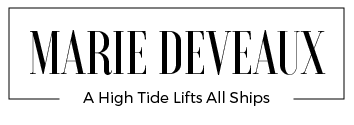How do you know if you’re an activist? I didn’t really see myself as one until deep into my entrepreneurial journey. Surprising, right? But let’s break it down: Do you consider your 9-to-5 or 10-to-6 gig as a form of activism? Do you engage in activism in the workplace? Should you?
I’ve grappled with this question a lot. Many of us who work in inclusive roles—whether that’s in HR, L&D, or as executive leadership coaches—often find that our work gets boiled down to specific tasks. You lead a workshop. You create training modules. You coach an executive. But in reality, our work is so much more; it’s about guiding people on a leadership journey.
Five Key Ways Activism Shows Up in Professional Development
1. Creating Safer Spaces
 I’m all about “setting the container,” especially when initiating a workshop or dialogue. What are the boundaries that allow people to freely express themselves? Setting the container is like laying out a canvas for creative expression. Consider how you’re establishing an environment that lets people be their authentic selves. When we embody inclusive leadership in our professional development programming, we make spaces where more people feel safe to be themselves, contribute their ideas and try on new ones.
I’m all about “setting the container,” especially when initiating a workshop or dialogue. What are the boundaries that allow people to freely express themselves? Setting the container is like laying out a canvas for creative expression. Consider how you’re establishing an environment that lets people be their authentic selves. When we embody inclusive leadership in our professional development programming, we make spaces where more people feel safe to be themselves, contribute their ideas and try on new ones.
2. Sponsorship vs. Mentorship
Sponsorship is a big deal for me. As a mentor during my undergrad years, I found immense value in passing on my knowledge. But how often do the leaders we support get tripped up thinking about sponsorship vs mentorship? Here’s a quick breakdown: Going beyond mentorship, sponsorship means lending your resources unconditionally. It’s not just about being in someone’s corner when they’re in the room; it’s about advocating for them even when they’re not. Sponsorship is one of the ways that activism in the workplace shows up as part of a career and professional development toolkit. When was the last time you acted as a sponsor?
3. Supporting Broader Movements
 I’m a long-term supporter of causes like the ACLU and Planned Parenthood. My company’s resources amplify my personal contributions, which allows me to “vote” with my dollars. And yes, while some might call this “corporate social responsibility” I also consider these small monthly contributions a way for me to personally stay connected to causes I care about. And my donation also makes sure I am staying in the loop with those causes as well. Reading those newsletters and receiving those messages about new legislation gets to be part of my professional development plan as a leader. What movements are you financially backing?
I’m a long-term supporter of causes like the ACLU and Planned Parenthood. My company’s resources amplify my personal contributions, which allows me to “vote” with my dollars. And yes, while some might call this “corporate social responsibility” I also consider these small monthly contributions a way for me to personally stay connected to causes I care about. And my donation also makes sure I am staying in the loop with those causes as well. Reading those newsletters and receiving those messages about new legislation gets to be part of my professional development plan as a leader. What movements are you financially backing?
4. Thought Leadership as Activism
Don’t underestimate the power of sharing your ideas and perspectives to inspire change. Thought leadership is a form of activism. Whether you’re writing articles, giving talks, or engaging in important conversations, you’re contributing to a larger dialogue and driving progress.
5. Understand Your History
 Knowledge by itself isn’t power. Applied knowledge can change the world. At High Tides, we subscribe to the concept of Sankofa—learning from the past to understand the present and shape the future. When Justice Ketanji Brown Jackson issued her dissent on the 2023 affirmative action ruling, I found myself diving deep into the historical context of race relations in the United States. This continual learning is vital for meaningful conversations and for addressing issues like microaggressions and cultural misunderstandings that arise in the workplace (and the life space too). Cultural and historical context is what allows people to share in one understanding and examine perspectives that are longer than the last news cycle.
Knowledge by itself isn’t power. Applied knowledge can change the world. At High Tides, we subscribe to the concept of Sankofa—learning from the past to understand the present and shape the future. When Justice Ketanji Brown Jackson issued her dissent on the 2023 affirmative action ruling, I found myself diving deep into the historical context of race relations in the United States. This continual learning is vital for meaningful conversations and for addressing issues like microaggressions and cultural misunderstandings that arise in the workplace (and the life space too). Cultural and historical context is what allows people to share in one understanding and examine perspectives that are longer than the last news cycle.
Don’t Underestimate Your Influence
And that’s it—five impactful ways I engage with activism through my work. While we often picture activists as the grassroots freedom fighters of the 1960s, the truth is that activism can show up in our everyday experiences. You likely are engaged in activism in the workplace whenever you mentor or sponsor someone, or when you speak up about a new idea.
So, don’t underestimate your own influence. Even if your “activism” starts with a lowercase ‘a,’ it’s still a powerful force for change. What form does your activism in the workplace take?
Feel free to take these ideas and weave them into your own professional development journey. After all, in our own ways, we’re all contributing to a bigger, better picture.









